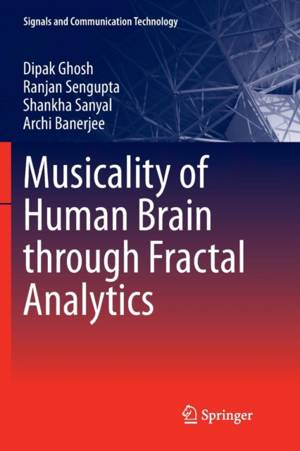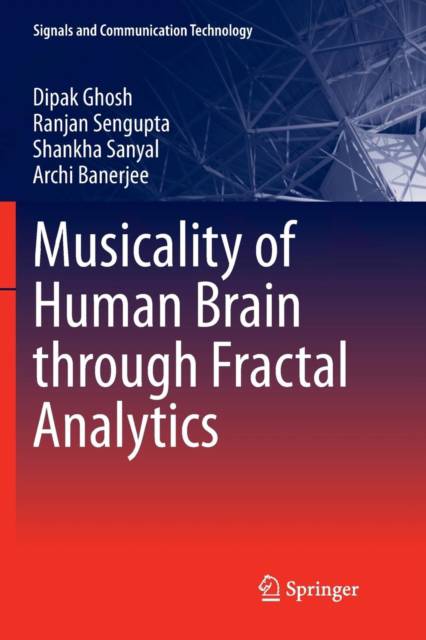
- Retrait gratuit dans votre magasin Club
- 7.000.000 titres dans notre catalogue
- Payer en toute sécurité
- Toujours un magasin près de chez vous
- Retrait gratuit dans votre magasin Club
- 7.000.000 titres dans notre catalogue
- Payer en toute sécurité
- Toujours un magasin près de chez vous
Musicality of Human Brain Through Fractal Analytics
Dipak Ghosh, Ranjan Sengupta, Shankha Sanyal, Archi Banerjee
167,95 €
+ 335 points
Format
Description
Broadens our understanding of the nonlinear processing of music and music-induced electroencephalograph (EEG) signals
Offers a simplified picture of how music signals are processed in the brain
Enriches our understanding of musicality and the brain
Spécifications
Parties prenantes
- Auteur(s) :
- Editeur:
Contenu
- Nombre de pages :
- 232
- Langue:
- Anglais
- Collection :
Caractéristiques
- EAN:
- 9789811348945
- Date de parution :
- 26-01-19
- Format:
- Livre broché
- Format numérique:
- Trade paperback (VS)
- Dimensions :
- 156 mm x 234 mm
- Poids :
- 358 g







